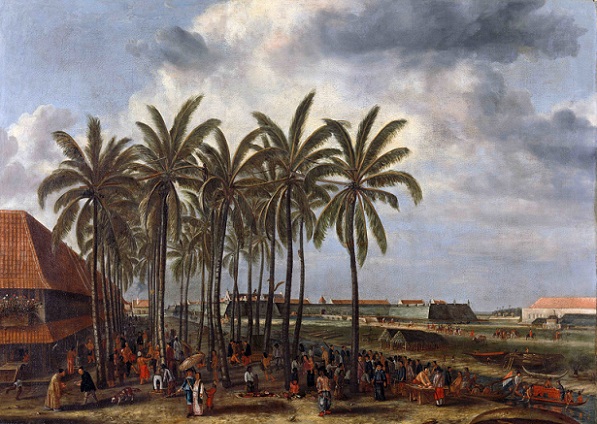The deadline has been extended for the one-day conference “Dutch Colonialism and Its Afterlives: Anglophone Literary Perspectives,” at the University of Groningen. The new deadline for submissions is February 9, 2024.
Description/Guidelines: Among contemporary writers of historical fiction from the US and the UK, stories set against the backdrop of Dutch colonial history have become increasingly popular. Not infrequently adapted into films and television series, these literary renderings wield substantial cultural power in shaping the understanding of Dutch imperialism among English-speaking readerships and audiences. Often, however, such narratives present whitewashed views of Dutch imperial culture or indulge in fetishistic representations of colonial spaces and subjects. In this way, they form part of a larger picture of the “western consumption” of colonial stories (Huggan xi), its influence on the English-language literary marketplace, and the mythologies it perpetuates through books. Anglophone fiction, poetry, drama, and memoir by postcolonial and diasporic voices from spaces including Sint Maarten, Suriname, Guyana, South Africa, Indonesia, and Sri Lanka have offered a concrete but often lesser-read alternative to these fictionalized histories.
Hosted by the University of Groningen’s Department of Modern English Literature and Culture with support from the Nederlandse Organisatie voor Wetenschappelijk Onderzoek (NWO), this one-day symposium intends to bring together scholars who are engaging with these two sides of the Anglophone literary landscape as it reflects these Dutch and transnational histories. We seek proposals for 15-minute papers on English-language literary representations of Dutch colonialism and/or its legacies and “present-day recursions” (Jones 617). Papers might interrogate but are not limited to addressing:
• The problematics of US and UK historical fiction that is set in or otherwise represents Dutch colonial contexts
• Anglophone postcolonial representations of Dutch colonialism and its legacies (where “postcolonial” is defined broadly as including “all the culture affected by the imperial process from the moment of colonization to the present day,” to use Ashcroft, Griffiths, and Tiffin’s figuration (2))
• Diasporic writers’ literary engagements with the Dutch as an imperial power
• Multilingualism and translanguaging in literary representations of Dutch colonialism and its afterlives
• Intersectional approaches to gender in Anglophone renderings of Dutch colonial history
• The role of genres such as the Gothic in Anglophone literary critiques of Dutch imperialism
• Dutch (post)colonial history in Anglophone children’s and young adult literature
• Approaches to teaching Dutch colonial history through English-language literary texts
A number of travel stipends of up to 400 euros per person will be available to help defray travel and accommodation costs for select participants. Early submission of abstracts by those who are hoping to receive financial support would be much appreciated. Graduate students and early-career scholars are especially encouraged to propose papers.
Please submit an abstract of 200-300 words as a PDF, DOC, or DOCX file to the symposium organizers – Suzanne Manizza Roszak, Ann Hoag, and Margret Asmundsdottir – at s.manizza.roszak@rug.nl. With your abstract, please submit a short biographical statement (ca. 50-100 words) and indicate any audiovisual equipment needs you anticipate having. Please also indicate whether you would like to be considered for a travel stipend and list your expected costs. This small symposium will be held fully in person.
For full description and Works Cited, see https://call-for-papers.sas.upenn.edu/cfp/2023/12/18/deadline-extended-dutch-colonialism-and-its-afterlives-anglophone-literary
[Shown above: Andries Beeckman, “The Castle of Batavia,” c. 1661, oil on canvas, 151.5 x 108 cm (Rijksmuseum). Note: Batavia is now Jakarta, Indonesia. Image from https://smarthistory.org/dutch-colonialism-and-andries-beeckmans-the-castle-of-batavia/ ]


2 thoughts on “CFP: “Dutch Colonialism and Its Afterlives””